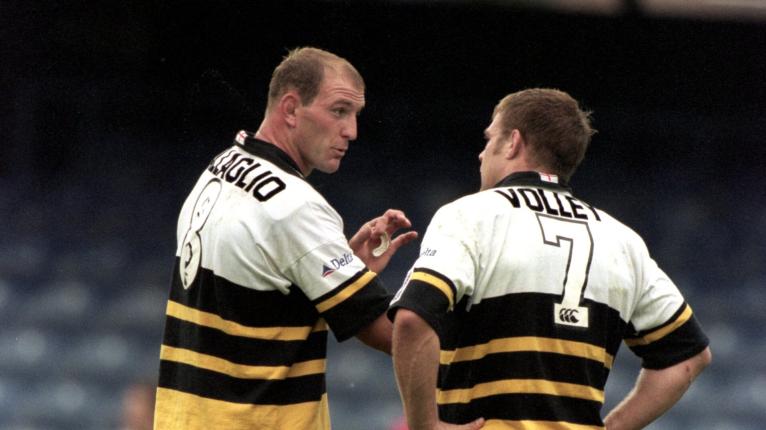
Even after facing a catastrophic collapse in 2022 with debts exceeding £100 million, the presence of Wasps continues to linger.
The recent appearance of a headline on the club’s social media platforms teasing “the latest on our recovery” has stirred up memories of past troubles.
This initial post by the club, now under new ownership and management, lacks substantial updates. Instead, it appears to be a probing attempt to gauge the level of interest the brand still holds.
Although Wasps aren’t soliciting financial contributions, their call for interested parties to “pledge” their commitment serves a dual purpose. It not only allows them to build a marketing database but also provides an estimate of their fan base, crucial for their bid to join the RFU’s proposed Premiership Two.
However, the lack of concrete evidence regarding their financial stability and stadium situation has sparked mixed reactions, especially considering the club’s recent financial troubles.
On social media, while dedicated fans express support for the former European champions, many skeptics voice concerns, particularly regarding the club’s massive debt write-off.
For those unfamiliar with English rugby dynamics, it’s important to understand the existing tension between the RFU and lower-tier clubs, both amateur and semi-pro. Wasps’ statement implying readiness to join a higher-level competition only adds fuel to this fire.
It’s evident that Wasps likely have a secured or nearly secured spot in the RFU’s proposed Premiership Two, which effectively shuts out other hopeful and financially solvent clubs. This situation sends a clear message that despite past failures, certain clubs have a guaranteed path back to the top tier, undermining the efforts of others striving for success.

Put differently, while clubs like Richmond, Orrell, West Hartlepool, Rugby Lions, and London Welsh have had to restart from scratch at the grassroots level following financial collapses, it appears that Wasps may be exempt from this fate.
This exacerbates the frustration felt by Championship clubs, who are already being pushed towards Premiership Two, with their central funding slashed and initial financial offers from the RFU falling short of expectations.
The prospect of reapplying for a league they currently compete in, coupled with doubts about the future of merit-based promotion and relegation, only adds insult to injury.
Wasps’ assertion that their future league administrators must “share our values” rings hollow given their recent financial troubles, as highlighted by investigations revealing significant losses for bondholders, local businesses, catering suppliers, the UK government, and former owner Derek Richardson.
Despite RFU regulations requiring Phoenix clubs to repay rugby-related debts, including outstanding wages, there’s a glaring absence of rules governing other owed sums, potentially leaving behind a debt exceeding £90 million for the new incarnation of Wasps.
In simpler terms, ‘pre-pack administration’ is a legal process that allows administrators to sell a collapsed firm’s assets to raise funds for creditors and prevent job losses. However, Wasps’ pre-pack administration hasn’t saved many jobs or significantly reduced its debt.
If Wasps’ reference to a league implies Premiership Two, are these the values other clubs should adopt? Critics argue that Wasps’ new ownership doesn’t absolve them of past actions, especially since the club’s former COO now owns it.
Adding to the controversy, a photo of Lawrence Dallaglio, former Wasps captain and non-executive director of the failed company, features in their latest release. This raises questions about special treatment.
With uncertainties looming, questions arise about Wasps’ plans to build a stadium in Kent and potential public funding. Meanwhile, other clubs in Worcester, Barnet, Oxford, Solihull, Henley-in-Arden, and beyond must navigate the arrival of a competitor with such a troubled history.
Why is the RFU seemingly abandoning its precedent of holding failed clubs accountable and fast-tracking Wasps into a brand-new Premiership Two? Will they extend the same leniency to other struggling clubs like Worcester, the London Irish, or the Jersey Reds? And why prioritize accommodating a financially disastrous business over adequately supporting Championship (or even National One) clubs that have managed their finances responsibly?
Above all, regardless of legal technicalities, how can any governing body overlook the staggering debts that are conveniently being swept under the rug?
I thought I had penned my final Wasps story long ago, but it appears my skepticism was premature, much like the investors who bet on their bonds.
Leave a Reply